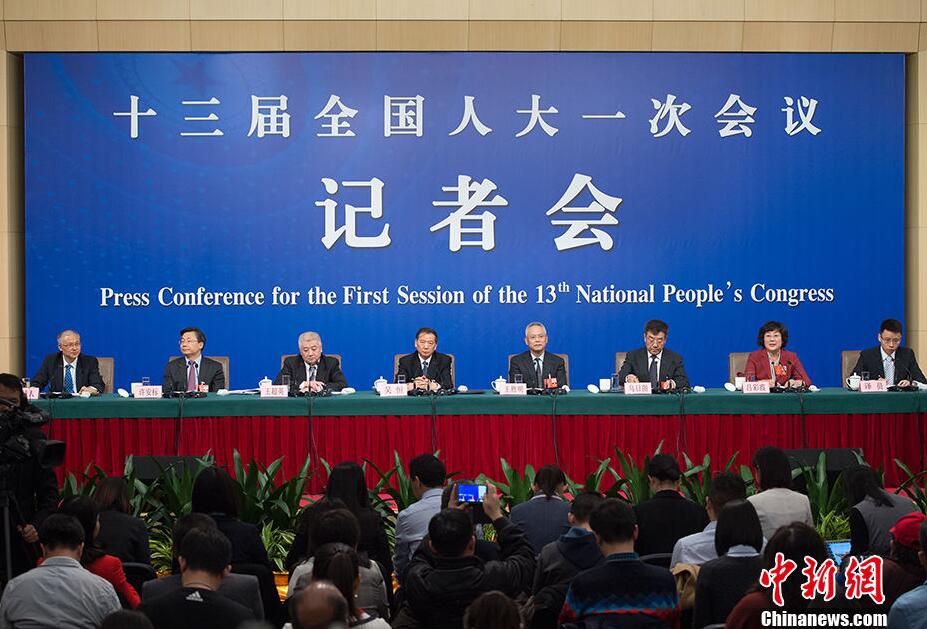
1. The five functions of the operating system are processor management, memory management, device management, file management and job management. Processor management The most basic function of processor management is to process interrupt events. After configuring the operating system, various events can be processed.
2. The main function of the computer operating system is process management, and its work is mainly process scheduling. In the case of a single user and a single taskNext, the processor is only monopolized by one user's task, and the process management work is very simple.
3. Operating System (abbreviation: OS) is a group of interrelated system software programs that supervise and control computer operation, use and run hardware, software resources and provide public services to organize user interaction.
4. Five major management functions of the operating system: (1) Job management: including tasks, interface management, human-computer interaction, graphical interface, voice control and virtual reality, etc. ( 2) File management: also known as information management. ( 3) Storage management: The essence is the management of storage "space", which mainly refers to the management of the main memory.
Any information system has five basic functions, namely: information collection and recording (input); information storage; information processing; information transmission; information output .
According to the functional introduction of the information system, the information system has five basic functions: input, storage, processing, output and control. Different functions have different functions, such as input function: the input function of the information system is determined by the purpose to be achieved by the system, the ability of the system and the permission of the information environment.
Five basic functions of the information system: input, storage, processing, output and control. Input function: The input function of the information system is determined by the purpose to be achieved by the system, the ability of the system and the permission of the information environment.Storage function: Storage function refers to the ability of the system to store various information and data. Mainly including: statistical functions.
The operating system has five functions: processor management: mainly controls and manages the work of the CPU. Storage management: mainly allocate and manage memory. Device management: mainly manage basic input and output devices. File management: responsible for the organization, storage, operation and protection of computer files.
The functions of the computer operating system include: processor management, memory management, device management, file management, job management and other functional modules. Processor management. The most basic function of processor management is to handle interrupt events. The processor can only detect interrupt events and generate interrupts and cannot process them.
The main function of the computer operating system is process management, and its main work is process scheduling. In the case of a single user and a single task, the processor is only monopolized by one user's task, and the work of process management is very simple.
The main functions of the operating system are process and processor management, job management, storage management, device management and file management, as follows: process and processor management. Because the execution of the program must rely on the processor, only one program flow can be processed and executed at any time. Homework management.
I) Processor management The most basic function of processor management is to handle interrupt events. The processor can only detect interrupt events and generate interrupts, and cannot handle these interrupt events. After configuring the operating system, all types of events can be handled.Another function of processor management is processor scheduling.
Five management functions of the operating system: job management: including tasks, interface management, human-computer interaction, graphical interface, voice control and virtual reality, etc. File management: also known as information management. Storage management: The essence is the management of storage "space", which mainly refers to the management of the main memory.

The storage management function of the operating system is to manage memory resources. It mainly realizes memory allocation and recovery, storage protection and memory expansion. The device management of the device management operating system is responsible for allocating and recycling external devices, and controlling external devices to operate according to the requirements of user programs.
The functions of the computer operating system include: processor management, memory management, device management, file management, job management and other functional modules. Processor management. The most basic function of processor management is to handle interrupt events. The processor can only detect interrupt events and generate interrupts and cannot process them.
The five functions of the operating system are processor management, memory management, device management, file management and job management.Processor management The most basic function of processor management is to process interrupt events. After configuring the operating system, various events can be processed.
Casino Plus free 100-APP, download it now, new users will receive a novice gift pack.
1. The five functions of the operating system are processor management, memory management, device management, file management and job management. Processor management The most basic function of processor management is to process interrupt events. After configuring the operating system, various events can be processed.
2. The main function of the computer operating system is process management, and its work is mainly process scheduling. In the case of a single user and a single taskNext, the processor is only monopolized by one user's task, and the process management work is very simple.
3. Operating System (abbreviation: OS) is a group of interrelated system software programs that supervise and control computer operation, use and run hardware, software resources and provide public services to organize user interaction.
4. Five major management functions of the operating system: (1) Job management: including tasks, interface management, human-computer interaction, graphical interface, voice control and virtual reality, etc. ( 2) File management: also known as information management. ( 3) Storage management: The essence is the management of storage "space", which mainly refers to the management of the main memory.
Any information system has five basic functions, namely: information collection and recording (input); information storage; information processing; information transmission; information output .
According to the functional introduction of the information system, the information system has five basic functions: input, storage, processing, output and control. Different functions have different functions, such as input function: the input function of the information system is determined by the purpose to be achieved by the system, the ability of the system and the permission of the information environment.
Five basic functions of the information system: input, storage, processing, output and control. Input function: The input function of the information system is determined by the purpose to be achieved by the system, the ability of the system and the permission of the information environment.Storage function: Storage function refers to the ability of the system to store various information and data. Mainly including: statistical functions.
The operating system has five functions: processor management: mainly controls and manages the work of the CPU. Storage management: mainly allocate and manage memory. Device management: mainly manage basic input and output devices. File management: responsible for the organization, storage, operation and protection of computer files.
The functions of the computer operating system include: processor management, memory management, device management, file management, job management and other functional modules. Processor management. The most basic function of processor management is to handle interrupt events. The processor can only detect interrupt events and generate interrupts and cannot process them.
The main function of the computer operating system is process management, and its main work is process scheduling. In the case of a single user and a single task, the processor is only monopolized by one user's task, and the work of process management is very simple.
The main functions of the operating system are process and processor management, job management, storage management, device management and file management, as follows: process and processor management. Because the execution of the program must rely on the processor, only one program flow can be processed and executed at any time. Homework management.
I) Processor management The most basic function of processor management is to handle interrupt events. The processor can only detect interrupt events and generate interrupts, and cannot handle these interrupt events. After configuring the operating system, all types of events can be handled.Another function of processor management is processor scheduling.
Five management functions of the operating system: job management: including tasks, interface management, human-computer interaction, graphical interface, voice control and virtual reality, etc. File management: also known as information management. Storage management: The essence is the management of storage "space", which mainly refers to the management of the main memory.

The storage management function of the operating system is to manage memory resources. It mainly realizes memory allocation and recovery, storage protection and memory expansion. The device management of the device management operating system is responsible for allocating and recycling external devices, and controlling external devices to operate according to the requirements of user programs.
The functions of the computer operating system include: processor management, memory management, device management, file management, job management and other functional modules. Processor management. The most basic function of processor management is to handle interrupt events. The processor can only detect interrupt events and generate interrupts and cannot process them.
The five functions of the operating system are processor management, memory management, device management, file management and job management.Processor management The most basic function of processor management is to process interrupt events. After configuring the operating system, various events can be processed.
UEFA Champions League live streaming app
author: 2025-01-08 10:30 UEFA Champions League
UEFA Champions League
968.51MB
Check DigiPlus fair value
DigiPlus fair value
564.11MB
Check DigiPlus Philippine
DigiPlus Philippine
215.69MB
Check Free sports events uefa champions league app android
Free sports events uefa champions league app android
431.38MB
Check Hearthstone Arena Tier List
Hearthstone Arena Tier List
754.15MB
Check DigiPlus Philippine
DigiPlus Philippine
346.96MB
Check UEFA Champions League
UEFA Champions League
995.83MB
Check Arena Plus login
Arena Plus login
464.66MB
Check bingo plus update today Philippines
bingo plus update today Philippines
221.87MB
Check Hearthstone Arena win rate
Hearthstone Arena win rate
137.97MB
Check UEFA Europa League
UEFA Europa League
425.82MB
Check Hearthstone Wild Decks
Hearthstone Wild Decks
151.55MB
Check Casino Plus login register
Casino Plus login register
834.59MB
Check Arena plus APK
Arena plus APK
284.28MB
Check UEFA Champions League standings
UEFA Champions League standings
582.85MB
Check Hearthstone arena class win rates reddit
Hearthstone arena class win rates reddit
774.27MB
Check Hearthstone arena class win rates reddit
Hearthstone arena class win rates reddit
333.76MB
Check Bingo Plus stock
Bingo Plus stock
953.42MB
Check Arena plus APK
Arena plus APK
449.92MB
Check bingo plus update today Philippines
bingo plus update today Philippines
135.99MB
Check Walletinvestor digi plus
Walletinvestor digi plus
497.81MB
Check casino plus free 100
casino plus free 100
625.64MB
Check DigiPlus Philippine
DigiPlus Philippine
731.12MB
Check UEFA Champions League live streaming free
UEFA Champions League live streaming free
347.17MB
Check Hearthstone arena class win rates reddit
Hearthstone arena class win rates reddit
379.92MB
Check bingo plus update today
bingo plus update today
176.27MB
Check European Cup live
European Cup live
262.29MB
Check Casino Plus app
Casino Plus app
547.97MB
Check Casino Plus GCash login
Casino Plus GCash login
897.22MB
Check Champions League
Champions League
681.19MB
Check Hearthstone arena
Hearthstone arena
787.65MB
Check Europa League app
Europa League app
187.81MB
Check Arena Plus login
Arena Plus login
497.71MB
Check Champions League
Champions League
227.44MB
Check bingo plus update today Philippines
bingo plus update today Philippines
532.21MB
Check Casino Plus app
Casino Plus app
978.41MB
Check
Scan to install
Casino Plus free 100 to discover more
Netizen comments More
2929 Casino Plus
2025-01-08 10:59 recommend
1142 Walletinvestor digi plus
2025-01-08 10:57 recommend
734 Bingo Plus
2025-01-08 10:37 recommend
762 Casino Plus app
2025-01-08 10:27 recommend
331 Walletinvestor digi plus
2025-01-08 09:40 recommend